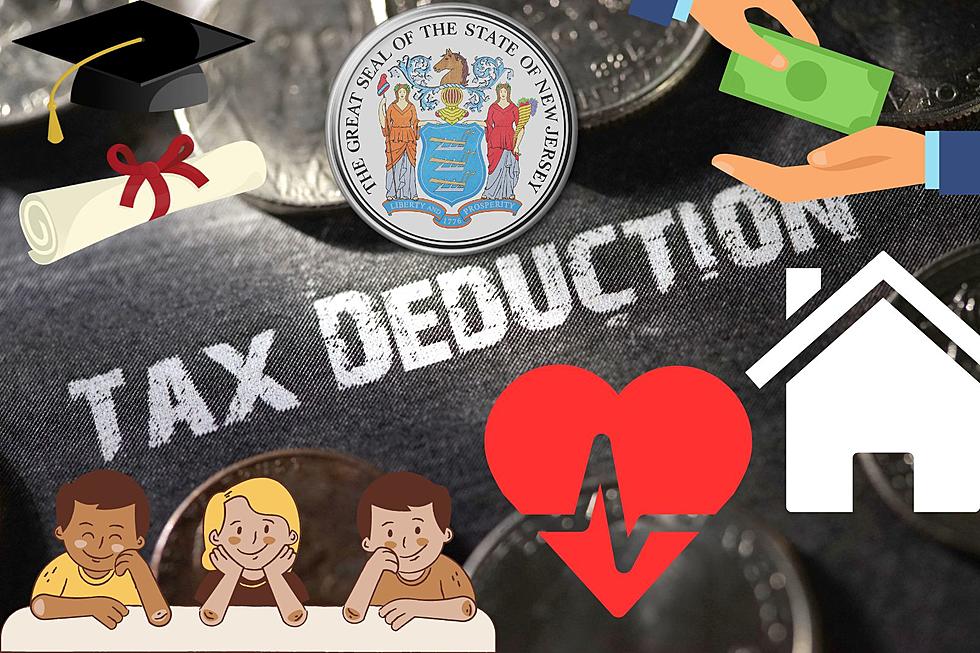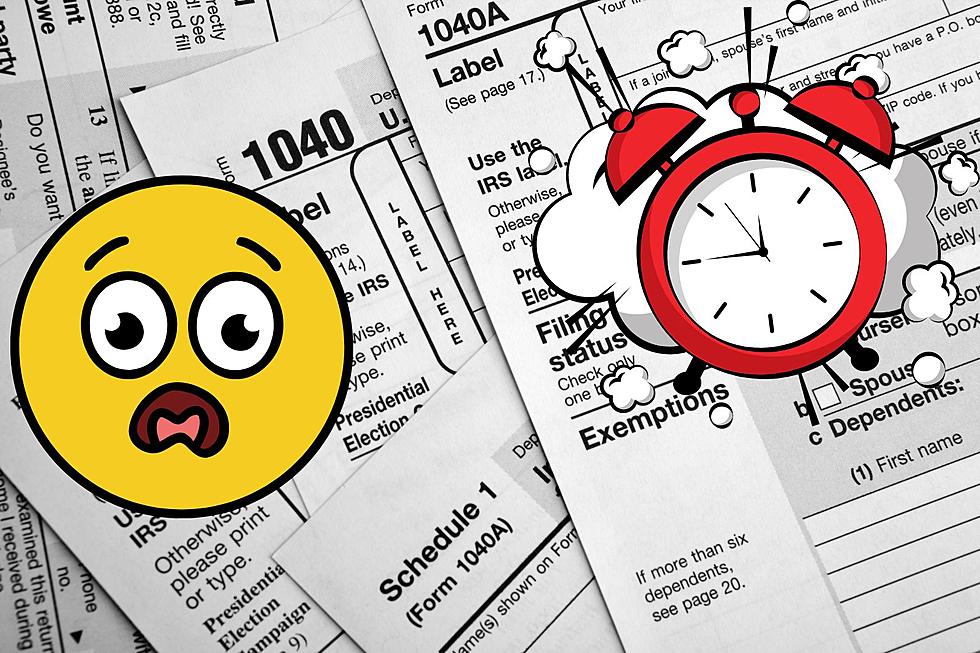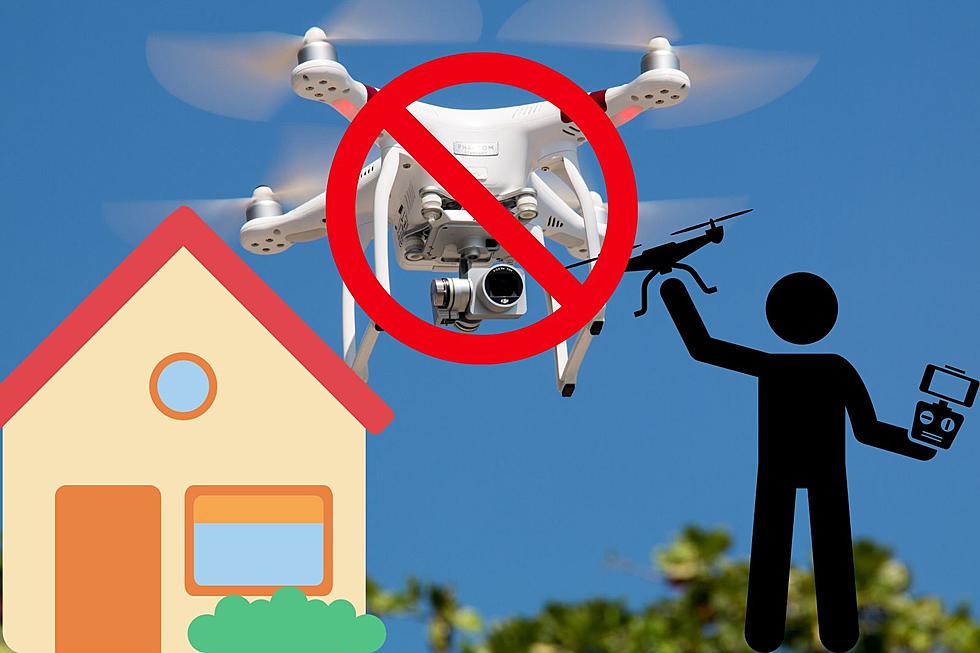
Big money: Don’t forget these NJ tax deductions for 2022
✅ New Jersey doesn’t offer a lot of tax deductions
✅ A new deduction could save you big $$
✅ Check our list to make sure you didn’t miss anything
Tax season is here, and as you prepare to file your 2022 New Jersey State Income Tax Return, tax preparers remind you not to forget to take all the deductions you are entitled to.
Unfortunately, New Jersey does not offer as many deductions as other states or the federal government.
There are, however, some tax breaks that people often overlook.
In order to figure out how much you owe, or what kind of refund you will receive, you have to begin with your gross income.
Thomas McCabe, CPA/PFS, CEO of Alliance Wealth Management Group in Flemington, says New Jersey does that differently, too.
“New Jersey is unique in that when computing gross income for tax purposes, they don’t start with the federal income tax number,” McCabe notes.
(Spoiler alert: New Jersey uses a higher number to compute your taxes.)
In many other states, McCabe says filing is a lot easier.
“You start with the federal number (for gross income), you make some adjustments to it, and then you calculate your state income tax return," he said. “New Jersey says no, we have our own rules.”
New Jersey does not allow federal deductions such as mortgage interest, employee business expenses, and IRA and Keogh Plan contributions. That’s why the New Jersey gross income number is higher. The goal is to reduce that number, so you pay less tax.
As you prepare your tax return, don’t forget to see if you qualify for these deductions.
New for 2022 tax year, according to the New Jersey Division of Taxation:
✅ Contributions into a New Jersey Better Educational Savings Trust (NJBEST), up to $10,000;
✅ The amount of principal and interest paid on student loans under the New Jersey College Loans to Assist State Students (NJCLASS), up to $2,500;
✅ Tuition paid to an in-state higher learning institution for enrollment or attendance, up to $10,000.
Note: The income limit for these deductions is $200,000.
Common Deductions:
Personal Exemptions (From the NJ Div. of Taxation)
Regular Exemptions
You can claim a $1,000 exemption for yourself and your spouse/CU partner (if filing a joint return) or your Domestic Partner.
Senior 65+ Exemptions
You can claim a $1,000 exemption if you were 65 or older on the last day of the tax year.
If you are filing jointly, your spouse can take a $1,000 exemption if they were 65 or older on the last day of the tax year.
Note: You cannot claim this exemption for your domestic partner or dependents.
Blind or Disabled Exemptions
You can claim a $1,000 exemption if you were blind or disabled on the last day of the tax year.
If you are filing jointly, your spouse can take a $1,000 exemption if they were blind or disabled on the last day of the tax year.
Note: You cannot claim this exemption for your domestic partner or dependents.
Veteran Exemptions
You can claim a $6,000 exemption if you are a military veteran who was honorably discharged or released under honorable circumstances from active duty any time before the last day of the tax year.
If you are filing jointly, your spouse can also take this exemption if they are a military veteran who meets the requirements.
Note: You cannot claim this exemption for your domestic partner or dependents.
Dependent Exemptions
You can claim a $1,500 exemption for each child or dependent who qualifies as your dependent for federal tax purposes.
Dependent Attending College Exemptions
You can claim an additional $1,000 exemption for each dependent student if all the requirements below are met. You cannot claim this exemption for yourself, your spouse, or your domestic partner.
✅ Student must be claimed as a dependent on the tax return.
✅ Student must be under age 22 on the last day of the tax year.
✅ Student must attend full-time. Full-time is determined by the school.
✅ Student must spend at least some part of each of five calendar months of the tax year at school.
✅ The educational institution must be an accredited college or post-secondary school, maintain a regular faculty and curriculum, and have a body of students in attendance.
✅ You must have paid one-half or more of the tuition and maintenance costs for the student. Financial aid received by the student is not calculated into your cost when totaling one-half of your dependent's tuition and maintenance. However, the money earned by students in college work study programs is income and is taken into account.
Property Tax Deduction/Credit (From the NJ Division of Taxation)
If you were a New Jersey homeowner or tenant, you may qualify for either a property tax deduction or a refundable property tax credit.
More information is available on the credit/deduction by clicking HERE.
Medical Expenses
McCabe says many people often overlook medical deductions. The IRS only allows you to deduct total medical expenses that exceed 7.5% of your adjusted gross income.
In New Jersey, the threshold is much lower: 2%
New Jersey allows you to deduct from your gross income certain medical expenses that you paid during the year for yourself, your spouse or domestic partner, and your dependents. However, you cannot deduct expenses for which you were reimbursed.
In addition to doctor's visits, dental care, hospital care, eye examinations, eyeglasses, medicine, and diagnostic services order by your healthcare provider, New Jersey also counts insurance premiums as a medical expense.
Premiums, including amounts paid under Social Security for Medicare, can be used as medical deductions.
You also can deduct transportation costs that are allowable on your federal return.
Note: If you deduct medical expenses in one year and are reimbursed in the next, you must include the reimbursement as income in the year you receive the payment.
New Jersey also allows for Archer MSA Contributions (From the NJ Div. of Taxation)
New Jersey follows the federal rules for deducting qualified Archer MSA contributions. Your contribution cannot be more than 75% of your annual health plan deductible (65% if you have a self-only plan).
Self-Employed Health Insurance Deduction (From the NJ Div. of Taxation)
If you are considered self-employed for federal tax purposes, or you received wages in 2022 from an S corporation in which you were a more-than-2% shareholder, you can deduct the amount you paid during the year for health insurance for yourself, your spouse/civil union partner or domestic partner, and your dependents.
Your deduction cannot be more than the amount of your earned income, as defined for federal tax purposes, from the business under which the insurance plan was established.
For more information, see the Technical Advisory Memorandum on the New Jersey Division of Taxation website, or by clicking HERE.
Alimony and Separate Maintenance Payments (From the NJ Division of Taxation)
You can deduct from gross income court-ordered alimony or separate maintenance payments you made.
Do not deduct payments for child support.
Less Common Deductions, but worth a look
Qualified Conservation Contributions (From the NJ Div. of Taxation)
You can deduct from gross income qualified conservation contributions you made, as defined in IRC Sec. 170(h), of a qualified real property interest in property located in New Jersey.
The deduction is the amount of the contribution allowed as a deduction in calculating your taxable income for federal purposes.
Organ/Bone Marrow Donation Deduction (From the NJ Div. of Taxation)
If you donated an organ or bone marrow to another person for transplantation, you can deduct up to $10,000 of unreimbursed expenses for travel, lodging, and lost wages related to the donation.
This deduction is also available to your spouse (if filing jointly) or any dependents you claim on your return.
Note: You must take the deduction the year in which the transplant occurs and the combined deduction amount cannot exceed $10,000.
2023 Seaside Heights Polar Bear Plunge
Eric Scott is the senior political director and anchor for New Jersey 101.5. You can reach him at eric.scott@townsquaremedia.com
Click here to contact an editor about feedback or a correction for this story.
More From Lite 96.9 WFPG










